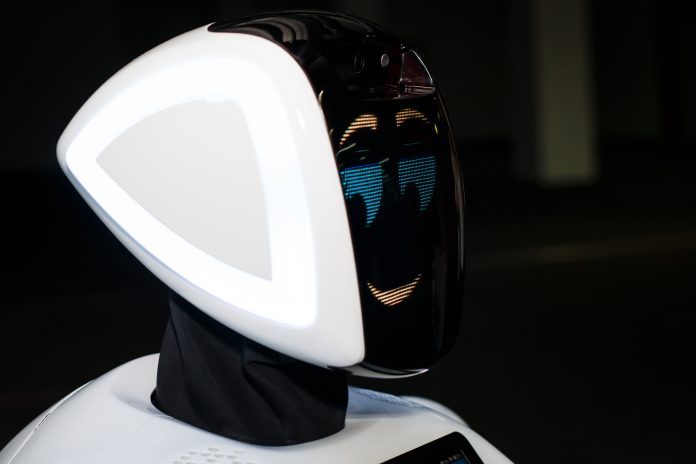Thomas Bradley, content writer at Lookers BMW, explores how automation could shape the future of business and how it may, in fact, play a part in helping the environment too
Technology has become a necessity rather than just a nice-to-have during the COVID-19 pandemic. Tasks such as shopping for groceries, booking a taxi, or ordering a takeaway have all been made easier thanks to technological advances. Despite its influence on consumer behaviours, one of the perceived downfalls of automation is the limit it has on the reliance for humans to carry out certain tasks and jobs. A debate that has, and will, rage on for quite some time.
But, as the world has been gripped by the COVID-19 pandemic, will automation continue to be a necessity as we enter the ‘new normal’ and social distancing. Here we look at the role automation could play in the fight against COVID-19 and beyond.
Is automation best for business?
Following the World Health Organisation reclassifying coronavirus as a global pandemic in March, cities and communities effectively turned into ghost towns. Tourist hotspots, restaurants, entertainment venues, and workplaces shut, with people instructed to stay at home.
In the UK, the job retention scheme was introduced to help ease the fears of businesses who were left to wonder how they would pay their staff and stay afloat. Originally set to last until July, the scheme has now been extended to October — an indication that economic impacts of the virus will be felt for some time.
As of yet, it’s unknown as to whether businesses — who rely on humans to come to work and carry out manual tasks — will survive a post-coronavirus recession. Will it force company bigwigs to invest in automation to boost their chances of longevity and success?
In April, a study carried out by auditing firm, EY, found that nearly half of bosses in 45 countries are speeding up their plans to introduce automation, with companies such as Amazon and Ocado already using robots in customer fulfilment centres. A challenge that car manufacturers face is a reduction in available staff on their shop floors, which comes with health and safety concerns, and the need for new ecosystems to achieve efficient production. This may see a continued turn towards automation to aid the build of new vehicles.
It’s almost inevitable that automation across industries will increase, both during and after COVID-19. To what extent is unknown, but it could play a key role in the way we dine at restaurants, check-in to hotels, and everything else in-between.
Will we automate to help our environment?
You may pose the question: “How has coronavirus helped the environment?”. In the short-term it’s had a positive impact, with carbon emissions dramatically falling, creating cleaner air in the process. You may have seen flamingos thriving off quieter roads and the cleaner air in Mumbai, and mountain goats making themselves at home in the streets of Llandudno. But, when this is all over, will our attitudes change, or will we just go back to travelling back-and-forward, pumping out carbon emissions and increasing our carbon footprint again?
If businesses must look at automation, will consumers look towards it when they choose their next vehicle, for example? Choosing an electric vehicle over petrol or diesel means you won’t need to visit the petrol station to fill up — eliminating human interaction. Plus, you’ll reduce your carbon emissions to zero when driving. If you have worries over social distancing, knowing that you can e-charge your car at home — with the right equipment — it may sway you towards a greener lifestyle.
Year-to-date data for 2020 from the Society of Motor Manufacturers & Traders reveals a 131% increase in the registration of fully electric cars compared to the year previously. This shows a potential shift towards a more environmentally friendly future, one that introduces an element of automation at the same time. Manufacturers have already acknowledged this, with BMW, for example, being committed to having no less than 12 fully-electric models in their line-up over the next three-to-four years, with the German brand potentially offering an electric version of their 1 Series as early as 2021.
The fine balance between automation and interaction
It’s likely that automation will become more prominent as we move into the future, but striking the correct balance between automation and human interaction could be key in the short-term to enable economies to bounce back and communities to thrive like they did before the pandemic hit.
Sources
https://www.bbc.co.uk/news/business-52634759
https://news.sky.com/story/flamingos-enjoy-quieter-roads-and-cleaner-air-in-mumbai-11982032
https://www.theguardian.com/world/2020/mar/30/bosses-speed-up-automation-as-virus-keeps-workers-home
https://www.lookers.co.uk/bmw/new-cars/1-series
https://www.theguardian.com/world/2020/mar/30/bosses-speed-up-automation-as-virus-keeps-workers-home
https://www.smmt.co.uk/vehicle-data/evs-and-afvs-registrations/











